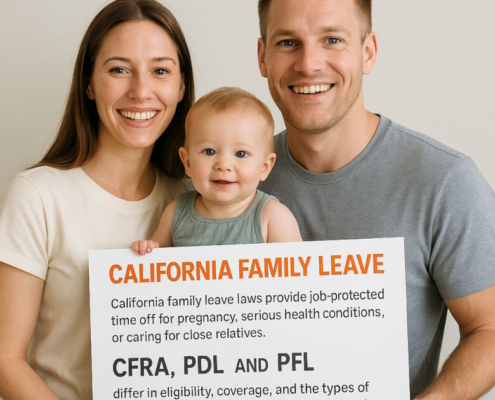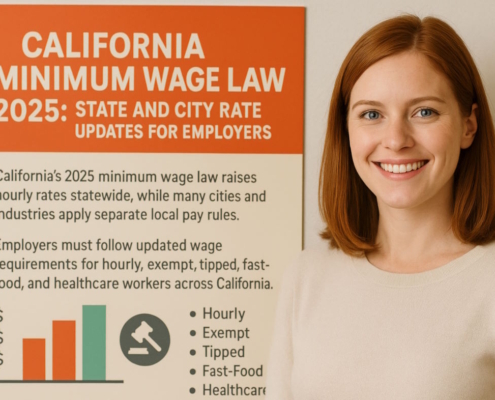What Is a Tip in California?
Under California Labor Code § 351, a gratuity is defined as money left for an employee by a patron over and above the amount due for goods or services provided. Tips are voluntary payments and differ from mandatory service charges, which are contractually required fees, such as a banquet service fee. Tips belong solely to the employees to whom they are paid, given, or left. A tip is money a customer leaves for an employee over the amount due for the goods sold or services rendered. It is given voluntarily and belongs to the employee, not to the employer. Tips and gratuities are considered additional amounts left by customers and are not payments for services rendered by the employer. The California Labor Code defines a gratuity as money that has been paid, given to, or left for an employee by a patron above the actual amount due. Tips are considered the sole property of the employee, ensuring that workers retain full control over their earned gratuities. A tip may be left by a patron to express gratitude for excellent service, and the amount is entirely at the customer’s discretion. Tips are not regulated by the employer and are not negotiable.
Can My Boss Take My Tips in California?
No, your employer or their agents are prohibited from taking or receiving any portion of a gratuity left for an employee by a patron. Labor Code § 351 expressly declares that gratuities are the sole property of the employee or employees to whom they are given. Employers cannot confiscate, deduct from, or redirect tips for any reason, including to penalize tardiness or cover business costs. Employers cannot use tips as credits toward wages owed. Tips left by customers are exclusively the property of the employees who earned them. Employers are strictly prohibited from taking any portion of an employee’s gratuities under California Labor Code § 351. Employees retain full ownership of their gratuities, and these protections ensure that employers do not manipulate or withhold tips unlawfully. Employers may not deduct tips from wages due to the employee or require employees to credit any part of gratuities against their wages. Labor Code § 351 is clear in safeguarding employees’ rights, preventing employers from using tips for their own benefit. Employees are entitled to retain all tips left for them without interference from employers or their agents.
How Long Can An Employer Hold Your Tips?
Labor Code Section 351 prohibits employers and their agents from sharing in or keeping any portion of a gratuity left for or given to one or more employees.
Under U.S. Federal Law (FLSA): The Fair Labor Standards Act (FLSA) requires employers to promptly distribute tips to the employees who earned them. Tips must not be held by the employer for any longer than necessary to facilitate their inclusion in payroll processing or tip pooling arrangements. Any delay beyond these purposes may constitute a violation of the FLSA.
Example
Under the FLSA, an employer collects tips from employees at the end of a shift for the purpose of pooling and redistributing them. However, the employer delays redistribution by several weeks without a valid reason, such as awaiting payroll processing or verifying the pool. This unnecessary delay, especially if it affects the employee’s ability to access their earnings, would likely violate federal law.
California Tips Laws: Many states impose stricter requirements on the distribution of tips. For instance, some states mandate that tips be distributed no later than the employee’s next scheduled payday, ensuring timely access to earned gratuities. Failure to comply with these state-specific regulations can result in additional penalties.
Example
In California, where state laws are stricter, an employer holds tips for more than the current pay period and fails to include the tips in the employee’s paycheck on the designated payday. For instance, if an employee’s payday is the 15th of the month and tips earned before that date are not included, the employer may violate state labor laws requiring timely payment of all wages, including tips, by the scheduled payday.
Consequences for Employers:
- Legal Penalties: Employers who unlawfully withhold tips may face legal action, including fines or penalties. In some cases, they may be required to pay back the withheld tips, plus additional damages.
- Employee Lawsuits: Employees may file lawsuits to recover withheld tips. If successful, employers may have to pay attorneys’ fees, court costs, and punitive damages.
- Loss of Tip Credit: For employers using a tip credit to meet minimum wage requirements, withholding tips may result in the loss of the tip credit. This means the employer would have to pay employees the full minimum wage without factoring in tips.
- Reputational Harm: Unlawful practices can damage an employer’s reputation, leading to potential loss of business and difficulty in retaining or hiring staff.
Is It Legal for My Employer to Deduct Credit Card Processing Fees From My Tips?
No, it is illegal for employers to deduct credit card processing fees from tips. When a customer pays a tip using a credit card, the employer must pay the full tip amount to the employee by the next regular payday without any deductions for credit card fees. Labor Code § 351 provides that the employer must pay the full amount of the tip indicated on the credit card. Employers cannot pass on credit card processing fees to employees by deducting them from gratuities. Employees are entitled to receive the total amount of tips left for them by patrons, regardless of payment method. Employers are responsible for covering any fees associated with credit card transactions, ensuring that tips remain intact. Payment of gratuities made by patrons using credit cards must be made to employees no later than the next regular payday following the transaction. This law ensures that employees are not unfairly penalized for the costs associated with credit card payments. Deducting fees from employees’ tips is a direct violation of California’s labor laws.
Under California Tip Laws, Do I Have to Share My Tips With a Busboy and the Bartender?
Yes, under certain conditions. California law allows employers to implement tip pooling policies, which require employees to share tips with other staff who are part of the chain of service, such as bussers and bartenders. However, tip pooling must be fair and reasonable, and employers, managers, and supervisors cannot participate in the tip pool. Tip pooling is legal in California as long as it only includes employees who are in the chain of service. Employees who provide direct service or contribute to the customer experience may share in tip pools. California courts have upheld tip pooling policies that include bussers, bartenders, and other employees who are integral to the service chain. Tip pooling arrangements must exclude owners, managers, or supervisors who have the authority to hire and fire employees. A policy in which tips are shared among employees in the chain of service encourages teamwork and ensures fair distribution. Employees involved in the tip pool must have a reasonable relationship to the patrons’ overall service experience. Employers must ensure that tip pooling policies are not used to compensate individuals outside the direct service chain.
Are Tips Part Of The Wage?
No. Since tips are voluntarily left for you by the customer of the business and are not being provided by the employer, they are not considered as part of your regular rate of pay. When tips are received by the employee from the employer, such as restaurant tips or service charges, the tip amount is considered regular wages and is taxable income. However, if tips are distributed to you by the employer, such as pooled restaurant tips or mandatory service charges added to a customer’s bill, these amounts are classified differently. In such cases, the tip or service charge amount is treated as regular wages, meaning it is fully taxable and subject to payroll taxes, including Social Security, Medicare, and state income tax withholdings. This distinction is important for tax and labor law compliance, as it determines how the income is calculated, reported, and taxed.
Is A Tip Considered Income?
Are tips taxable in California? Yes, the IRS view tips as taxable income, and it is your duty to report all tips you receive as part of your income on your tax return. This requirement applies to all forms of tips, including cash tips handed directly to you by customers, electronic tips processed through credit cards, gift tips, debit cards, and even non-cash tips such as gift certificates, concert tickets, or other valuable items received as gratuities. Regardless of the form in which tips are received, the IRS views tips as income and must be reported accurately to avoid penalties or underreporting issues. Employers are also required to account for reported tips when calculating payroll taxes, making proper reporting critical for both employees and their employers.
Are Tips Part of My Hourly Pay for Overtime Calculations?
No, tips are not included in the calculation of an employee’s regular rate of pay for overtime purposes. Because tips are voluntary payments left by customers and not wages provided by the employer, they do not factor into overtime pay calculations. Employees are entitled to be paid at least the state’s full minimum wage for all hours worked, excluding tips. California law prohibits employers from using tips to calculate overtime rates. Tips are considered additional compensation voluntarily left by patrons and are separate from wages earned for work performed. Overtime pay is calculated based on an employee’s regular rate of pay, which does not include tips. California’s minimum wage requirements apply to employer-paid wages, not tips received from customers. Employees who earn tips must still be paid the full minimum wage set by the state or local jurisdiction. Tips cannot be used to offset an employer’s obligation to pay overtime wages under California law. This ensures that employees receive fair compensation for all hours worked, including overtime.
Is a Service Charge by a Restaurant Considered a Tip or Gratuity Given to Employees?
Service charges are not considered tips under California law. Unlike voluntary tips, service charges are mandatory fees added to a bill. These charges belong to the employer, who may choose to distribute them to employees or retain them. However, some local ordinances, such as those in Santa Monica, Berkeley, and Emeryville, require certain businesses to distribute service charges to employees. The distinction between service charges and tips lies in the voluntary nature of tips versus the mandatory nature of service charges. Employers may treat service charges as wages and include them in calculations for overtime pay. Customers may mistakenly assume service charges are tips, but employers must disclose how these charges are handled. Service charges may be distributed to employees at the employer’s discretion but are subject to taxation and other legal requirements. Employers should clearly communicate to patrons and employees whether service charges are intended as tips or operational fees. Misrepresentation of service charges as gratuities can lead to legal disputes and potential violations of labor laws.
Is It Legal for My Employer to Deduct Tips From My Paycheck?
No, employers cannot deduct tips from your paycheck or wages. Under California Labor Code § 351, tips are the sole property of employees and cannot be used to offset wages owed to the employee or deducted for any reason. Employers must ensure that employees receive their full wages without deductions related to gratuities. California law protects employees’ rights to retain all tips earned without interference from their employer. Tips cannot be used to cover operational costs, penalties, or other deductions. Employees are entitled to receive the full amount of wages due, in addition to retaining all gratuities left by patrons. Deducting tips from employees’ paychecks constitutes a violation of state labor laws. Employees should report any unlawful deductions of tips to the appropriate authorities or seek legal recourse. The protections under Labor Code § 351 are designed to prevent employers from misusing employee earnings.
Is It Legal for My Employer to Include My Tip Money as Part of the Minimum Wage?
No, employers in California cannot use an employee’s tips as a credit towards meeting their obligation to pay the minimum wage. Unlike federal law, which permits tip credits under certain circumstances, California law strictly requires employers to pay the full minimum wage in addition to any tips earned by employees. Tips are considered separate from wages and cannot be used to offset minimum wage requirements. Employees must be paid the state’s minimum wage regardless of the amount of tips they earn. California’s minimum wage laws are among the most protective for workers in the nation. Employers who attempt to count tips toward minimum wage obligations are violating state labor laws. Employees are entitled to both the full minimum wage and the gratuities left by customers. Labor Code § 351 ensures that employers cannot reduce wages by factoring in tips received. This policy promotes fair compensation and prevents exploitation of service workers.
Is It a Crime for Employers to Violate Tip and Gratuity Laws?
Yes, violations of tip and gratuity laws are considered a misdemeanor under California law. Employers who violate these laws can face penalties, including fines of up to $1,000 and imprisonment for up to 60 days. These penalties are in addition to any monetary damages owed to employees. California Labor Code § 351 imposes criminal penalties on employers who unlawfully take or withhold gratuities. Violations of tip laws are taken seriously and can result in both civil and criminal consequences. Employers must comply with record-keeping requirements to ensure transparency and adherence to the law. Employees who experience violations of tip laws have the right to file complaints with the Labor Commissioner’s Office. Criminal penalties serve as a deterrent against the unlawful appropriation of tips by employers. Employers found guilty of tip law violations may also face reputational damage and loss of trust among employees and patrons. The enforcement of tip laws underscores California’s commitment to protecting workers’ rights.
What Can I Do When My Employer Violates Tip and Gratuity Laws?
If you believe your employer is violating California tip laws, you have several options:
- Document Everything: Keep detailed records of your tips, pay stubs, and any deductions made by your employer.
- Communicate With Your Employer: Raise concerns directly with your employer and ask for clarification.
- File a Wage Claim: Submit a claim to the California Division of Labor Standards Enforcement (DLSE). A Deputy Labor Commissioner will investigate your claim and may hold a hearing.
- Consult an Attorney: Seek legal advice to determine whether to file a lawsuit for wage recovery or pursue other legal remedies. Filing a complaint with the Labor Commissioner’s Office is often a straightforward way to address violations. Employees may also pursue civil remedies under California’s Unfair Competition Law for monetary recovery. Employers who retaliate against employees for reporting violations may face additional penalties. The California Labor Code provides multiple avenues for employees to recover unpaid tips and damages. Employees should act promptly to file claims within the applicable statute of limitations. Holding employers accountable for violations helps to uphold the integrity of labor protections in California.
Conclusion
California’s tip laws are designed to ensure that employees retain full control over the gratuities they earn and receive fair treatment. Employers cannot deduct, withhold, or misuse tips under any circumstances. If your employer violates these laws, you have the right to seek legal recourse to recover lost wages and hold them accountable for their actions.































